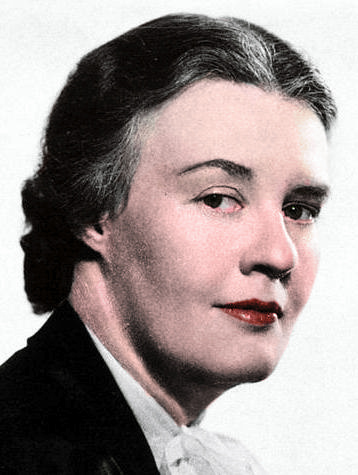Reading Eagle (August 1, 1941)

DOROTHY THOMPSON SAYS –
The Russian-Poland blow to Hitler
London –
The signing of the Russian-Polish friendship pact is a diplomatic military move of prime importance and indicates great sagacity on the part of the Russian government. It leaves Adolf Hitler as the only enemy, actual or potential, of the small nations of Europe. It is a thorough-going repudiation of the whole Russo-German pact.
If Germany has any case whatsoever, Poland and Russia have an equally good one and have had ever since 1918. The Polish frontiers were drawn after 150 years and the division could not be established with exact ethnographic justice. Modern Poland included far more Ukrainian and White Russian racial stock than it ever did of German stock.
Objective students of ethnographic questions challenged the eastern frontier settlement at the time the division was made. Therefore, the Russian gesture will leave Germany without a scrap of ground to stand on.
Meanwhile in the last two years since Poland became the victim of Hitler’s aggression and Warsaw the first heap of rubble as the result of the Luftwaffe’s activity, the Poles have justified the right to their country in the only way such a claim ever can be justified. They have demonstrated in every battle line, in every branch of service that they will die for Poland.
Some day a new Sienkiewicz will rise to write in epic form the story of the struggle of the Poles. He will record that when Poland’s own military experts advised her she could not hold out three weeks against Germany’s total war, and Great Britain warned her that no immediate aid could be expected because of geographic conditions and the necessary disposition of inadequate forces, the Poles fought anyway.
It will be recorded that, defeated and scattered, they escaped to neighboring countries, there to be interned under international law. It will be recorded that from there they escaped one by one until thousands of them were working their way to France to stand in lines there against the German onslaught. It will be recorded that no legions in France stood firmer, that when the Poles were forced to retreat they marched to Switzerland in full order to be received in silent admiration by the Swiss.
It will be recorded they stand on guard 30,000 strong in Scotland, that they are fighting in the Near East, that they are among the most daring fliers and among the most undaunted men of the merchant and armed marine.
It will be recorded that Nazi guile found no Quisling in Poland. It will be recorded that the fierce, passive resistance of the people, who, beaten and imprisoned, shot, humiliated, terrorized, has made it excessively difficult for the Germans to administer their country.
It will be recorded that young men and women published secret newspapers, operated secret sending and receiving radio stations under the eyes of the Gestapo. It will be recorded that the secret, sullen warfare goes on continually, relentlessly. It will be recorded that the fiercely loyal support of the men of Polish blood in Chicago, Cleveland and Buffalo, who, working in armament factories, watch carefully to prevent sabotage in the making of arms to protect America and defeat Hitler, and that they work for Poland, too.
It will be recorded that all the fierce pride and undaunted scorn of the people of that impoverished nation who possess the noble virtue of gratitude and who, being called into a rebirth by the democracies, remain loyal to them through thick and thin, intending once again to raise a statue to Woodrow Wilson which the Germans have torn down.
And it will be recorded also that intelligence and realism had grown among the Polish leaders in the face of disaster, how they drew near to the Czechs, planning with them a more reasonable collaboration, recognizing that in the modern world independence is the sister of interdependence, and cooperation is the mate of liberty.
The peace move on the part of Russia is revealing in another sense. It means Russia recognizes that the pull of nationhood is stronger among the peoples of the world than international communism and that Russia as a liberator of peoples is more powerful than Russia as the center of the Comintern.
The ranks of Russia close under the impulse of the age-long Slavic fear of the Teuton, and Russians of all political colors rediscover that Russian soil, whether protected by Reds or Whites, is the home of all Russians to be defended against any invader under any banner.
This broken but beautiful city of London has become the world center of lost causes, homeless governments, homeless soldiers and poets. The sum of the lost causes is the cause of the future. It is the cause fought for by this sceptered isle, the home of kings, and the land of the red star and the proletariat.
What will come out of it all no one can quite foresee, but certainly it will be a synthesis.
Meanwhile, a journalist feels the inadequacy of his medium. Poets and novelists should write about this war, not only journalists, for the truth about it can be grasped by sensibilities and imagination more clearly than by a mere factual study of events.
The last war produced a Remarque and a Barbusse to record its futility. This war will produce a Victor Hugo, a Sienkiewicz, a Joseph Conrad to record the final triumph of the world’s lost cause through the invincibility of the human spirit.
The German people know it. Led dumbly and decilely from victory to victory, they have apprehended the check that will come, for they know their outlandish leader has made them into rank outsiders of the world. He is making them the pariah of mankind even in their triumphs to be deeply pitied by the imaginative mind.